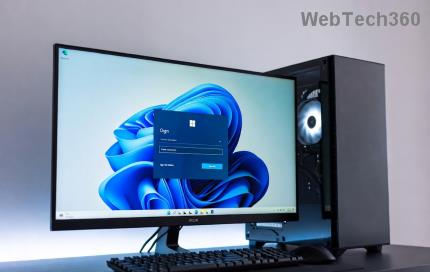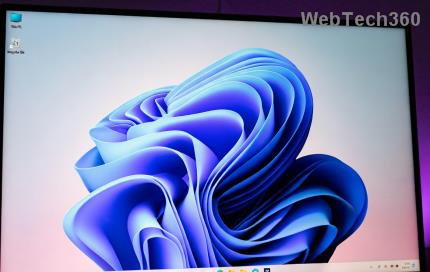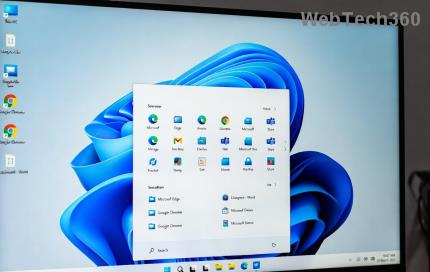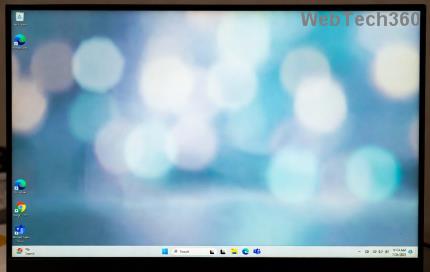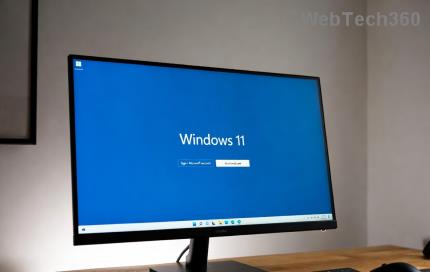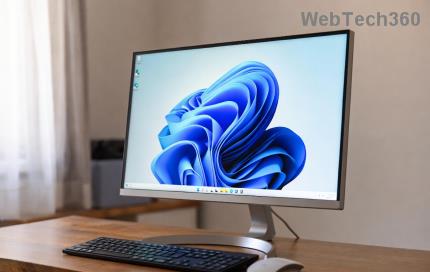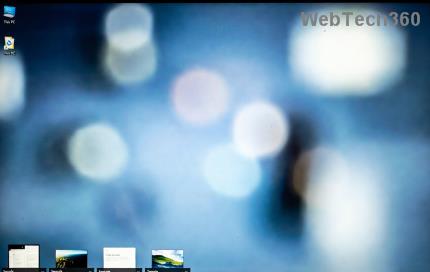How to enable God Mode on Windows 11
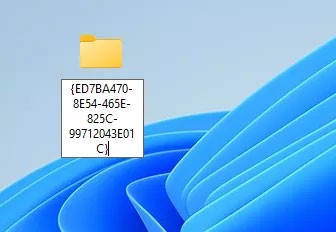
God Mode in Windows 11 can take you to printer or Bluetooth settings with just one click.
What is Godmode?
If you are a long-time Windows user, you must have heard of GodMode. In fact, GodeMode is called Windows Master Control Panel Shortcut.
GodMode is a special folder in Windows that gives you access to over 200 tools and settings that are usually hidden in the Control Panel and other windows and folders. When enabled, God Mode lets you do everything from quickly launching the disk defragmenter , viewing the event log, accessing the Device Manager , adding a Bluetooth device , formatting a hard drive partition , updating drivers , opening the Task Manager , changing display settings , customizing the mouse, hiding file extensions, changing font settings , renaming files , and much more.
For users who want to learn more about Windows 10/8/7, or simply want to learn and explore new features on Windows, they can use God Mode. This mode helps users dig deeper into the operating system, and can display settings that are not displayed on Windows. In the article below, WebTech360 will guide you how to activate God Mode on Windows 10, 8 and Windows 7.
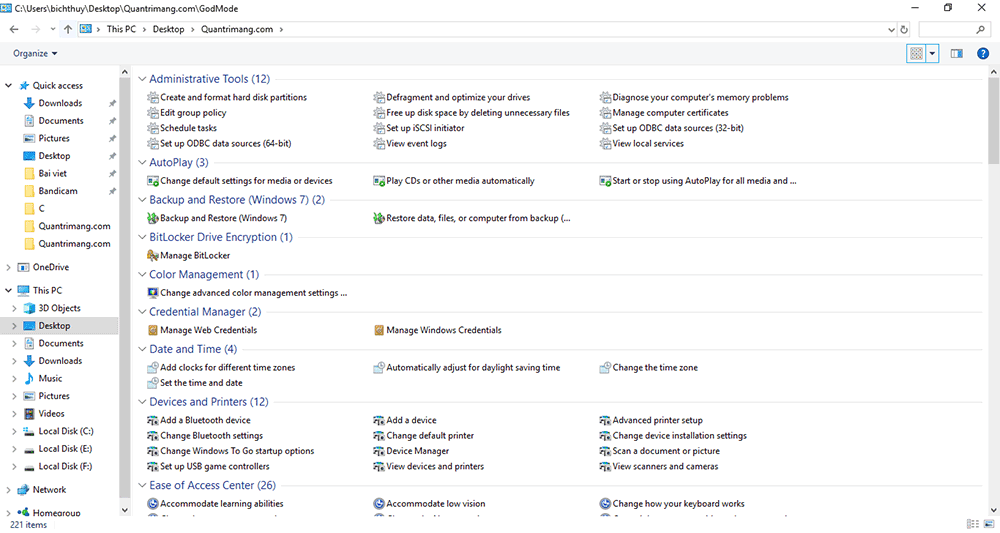
GodMode folder on Windows 10 (Click image to view larger size)
Enable GodMode on Windows 10
Step 1: Create a new folder by right-clicking on the Desktop screen => select New => Folder.
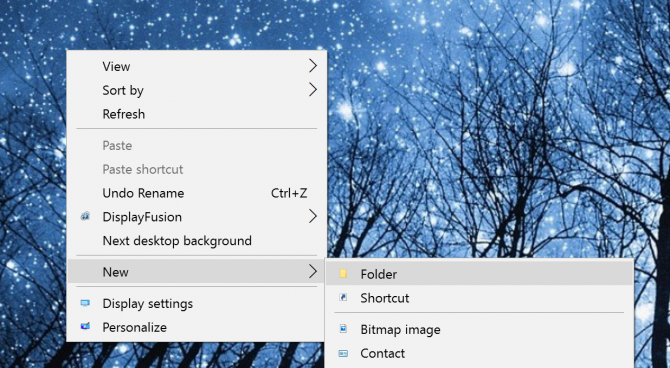
Step 2: Name the folder:
GodMode.{ED7BA470-8E54-465E-825C-99712043E01C}
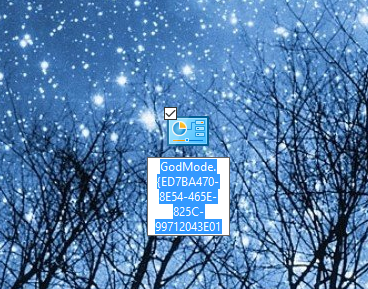
Note: You can replace GodMode with any name you want, such as JediMode or NinjaMode....
Step 3: Open the GodMode folder you just created to access over 260 commands, from Admin tools to backup tools, and several other important settings options.
Additionally, you can drag and drop any command from the GodMode folder to the Desktop screen to quickly access options.
Enable GodMode on Windows 10 using Extended GodMod tool
Updated on October 19, 2020
Extended GodMode is a free tool designed to enhance the default God Mode experience on Windows 10. With this tool, you still have access to over 200 options and settings like the default God Mode. However, it provides you with lists, filters, and a search box to make it easier for you to find what you need.
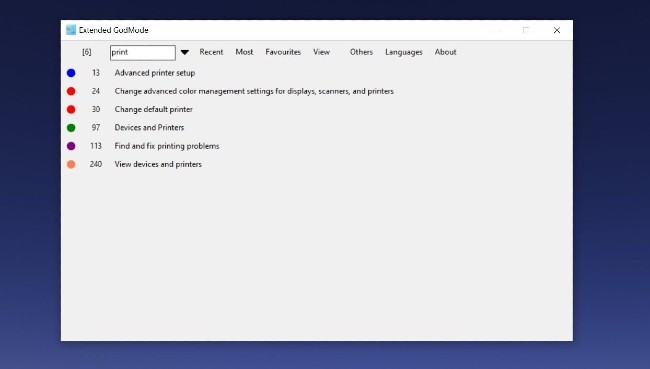
If you can't find the setting you need, you can use the search box on Extended GodMode. Your search results will be saved so you can access them later.
In addition, you can also create a list of favorite settings and bookmark them for faster adjustment in the future. Extended GodMode tool is provided for free, download and open, no installation required.
You can download Extended GodMode at the link below:
https://www.downloadcrew.com/download/39243/extended_godmodeCreate shortcuts to access quick settings from the screen
In the above section, you saw that we can create a shortcut to access God Mode on Windows 10 by renaming a folder with a special code. This method can also be used to create shortcuts to quickly access settings menus from the desktop. For example, you can rename a folder with the code {D20EA4E1-3957-11d2-A40B-0C5020524153} to quickly access Administrative Tools.
Other codes you can use include:
Enable GodMode on Windows 8/7
Step 1: Right-click on the desktop and select New => Folder .
If you don't want a desktop icon, you can create a new folder in your C: drive using Windows Explorer or My Computer . You can do this by right-clicking on your C: drive and selecting New, Folder . Now you can access it anytime.
Step 2: Copy and paste the name for the new folder:
GodMode {ED7BA470-8E54-465E-825C-99712043E01C}
See the illustration below:
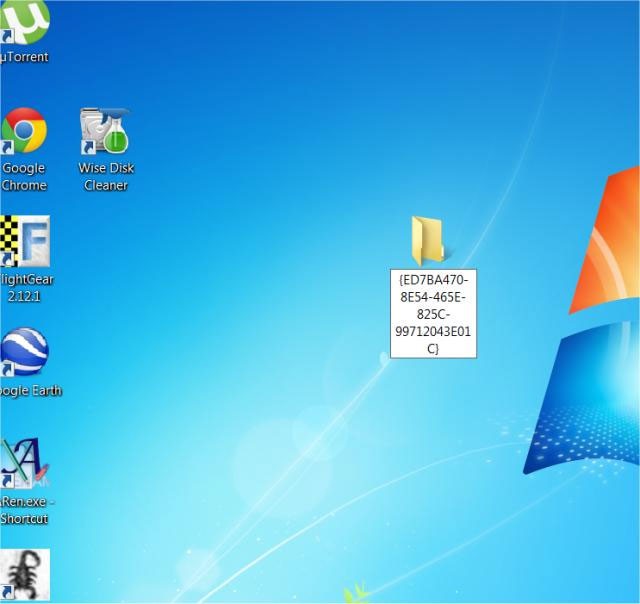
Step 3: The folder on your desktop will now be a God Mode shortcut.
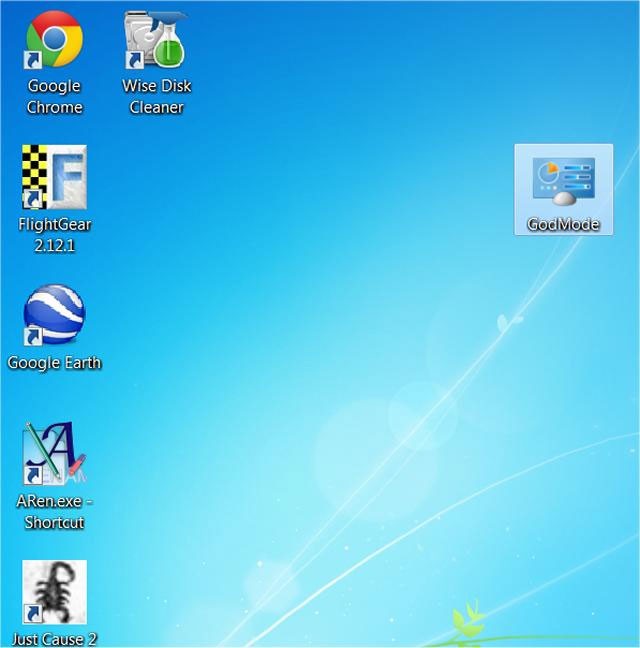
When you click access it you can find all hidden settings and you can modify.
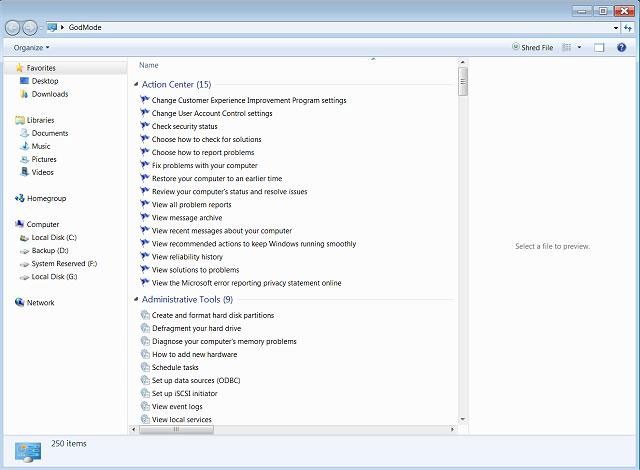
Note on Windows 8: If you get just a new folder with numbers and letters in it, you can delete that new folder and create it again on Windows Explorer (bottom left) and change the settings under the View tab of Windows Explorer . Then recheck the boxes, file extensions, names and hidden.
If you don't want to enable God Mode manually, you can download and install some of the following programs. These programs will enable God Mode on your Windows 8 and Windows 7 computers:
Notes when activating GodMode on Windows
lace "God Mode.{ED7BA470-8E54-465E-825C-99712043E01C}" Quantrimang
See more articles below:
Good luck!
Struggling with the frustrating "Something Went Wrong" error during Windows 11 upgrade? Discover proven, step-by-step fixes to get your system updated smoothly and securely. Say goodbye to upgrade headaches!
Struggling with Printer Error 709 on Windows 11 after a recent update? Discover proven troubleshooting steps to resolve this issue and get your printing back on track without frustration. Step-by-step guide for smooth fixes.
Discover how to harness the latest Windows 11 accessibility features in 2026 to make your computing experience inclusive, efficient, and empowering. Step-by-step guides for everyone.
Struggling with JDK install failures? Dive into this comprehensive troubleshooting guide to resolve common Java Development Kit issues on Windows, macOS, and Linux. Get back to coding without the hassle.
Struggling with the Windows 11 Sticky Notes database error? Discover proven troubleshooting steps to restore your notes quickly and effortlessly. Get back to productivity without the frustration.
Struggling with Rainmeter skin positioning errors on Windows 11? Discover proven fixes for misalignment, dragging issues, and DPI glitches. Step-by-step guide to restore your desktop perfection.
Discover how to use Windows 11 virtual desktops correctly to supercharge your workflow. Learn setup, management, and pro tips for seamless multitasking without the overwhelm.
Discover how to safely convert MBR to GPT without data loss in Windows 11. Follow our step-by-step guide using built-in tools and third-party software for a seamless upgrade to modern partitioning.
Struggling with the 0x80072ee7 Store connectivity error? Discover proven, step-by-step fixes to restore your Microsoft Store access quickly and easily. Say goodbye to frustrations!
Struggling with background change errors on Windows 11 Pro? This step-by-step guide helps gamers fix the issue fast, restoring your custom setups without hassle. Discover proven methods to personalize your desktop effortlessly.
Discover how to set up Windows 11 Dynamic Refresh Rate for buttery-smooth performance on compatible displays. Follow our step-by-step guide to optimize your PC
Struggling with slow browsers on Windows 11? Discover proven fixes for memory leaks in Chrome, Edge, Firefox, and more. Boost performance and end frustration today.
Struggling with the Windows 11 Photos App File System Error? Discover proven, step-by-step fixes to restore your photo viewing experience without hassle. Updated with the latest troubleshooting tips for seamless performance.
Struggling with OBS Studio black screen on Windows 11? Discover proven fixes for smooth streaming and recording. Step-by-step guide to resolve black screen issues quickly and easily.
Struggling with "GPT Partition Style Not Supported" error on your old PC? Discover proven solutions to convert partitions safely, upgrade your system, and get back to smooth computing without data loss. Perfect for legacy hardware users.
